Are Betting Odds Better Than Polls At Predicting Results?
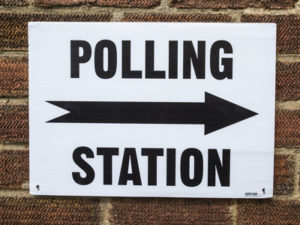 From a political point of view, there have been almost non-stop reasons for people to vote over the past decade or so. The thing that kick-started it all was undoubtedly the referendum on the United Kingdom’s membership of the European Union, after which the Conservative Party went into virtual meltdown, with leadership changes happening almost yearly. Even away from the world of politics there are often polls on subjects that you can bet on, such as the likely winner of a celebrity talent show like Strictly Come Dancing or I’m A Celebrity…Get Me Out Of Here!
From a political point of view, there have been almost non-stop reasons for people to vote over the past decade or so. The thing that kick-started it all was undoubtedly the referendum on the United Kingdom’s membership of the European Union, after which the Conservative Party went into virtual meltdown, with leadership changes happening almost yearly. Even away from the world of politics there are often polls on subjects that you can bet on, such as the likely winner of a celebrity talent show like Strictly Come Dancing or I’m A Celebrity…Get Me Out Of Here!
When it comes to the world of betting, people put their own money on the line. Often, the amount of money being wagered by some can by eye-watering, which tells its own story. Whilst people are happy enough to answer opinion polls, they will often not give as well thought-out an answer as they will when it comes to their own money being risked. As a result, there is certainly an argument to be had that you will get a better reading of how things are going to go from the betting market than from polls taken of people up and down the country.
The UK Is Difficult To Poll Politically
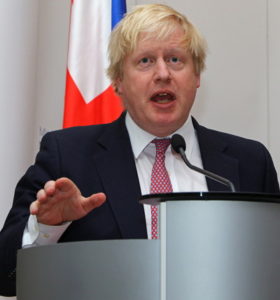 There is something about answering poll questions that means that people are more likely to lie. The American polling guru Nate Silver, founder of Five Thirty-Eight, pointed out ahead of the general election in 2017 that the average polling error in the United Kingdom is six percent. That is compared to an average polling error in the United State of America of two percent to show that people in the UK don’t always tell the truth when it comes to how they are planning to vote in an upcoming election, perhaps being ashamed to admit they will vote Tory.
There is something about answering poll questions that means that people are more likely to lie. The American polling guru Nate Silver, founder of Five Thirty-Eight, pointed out ahead of the general election in 2017 that the average polling error in the United Kingdom is six percent. That is compared to an average polling error in the United State of America of two percent to show that people in the UK don’t always tell the truth when it comes to how they are planning to vote in an upcoming election, perhaps being ashamed to admit they will vote Tory.
As a result, it is very difficult to take polls in the United Kingdom all that seriously. Whilst they might show the Conservatives gaining a majority, the likelihood is that the polls will underplay just how much of a majority the Tories will hit, which can be a major issue when it comes to betting on the Over / Under markets. Polls in UK politics are also confused by the manner in which elections work in the country. The First Past The Post system can be confusing for pollers to understand, especially if they don’t know where the people they are evaluating the vote of live.
The consequence of this is that polling is often inaccurate when taken in the United Kingdom. Whilst there can often be polling errors in the United States, voters are much less ashamed to admit that they will be voting for the Republicans or the Democrats than UK-based voters are in saying that they’ll vote Tory. This can be seen in the election of Donald Trump as President in 2016, which some thought was a surprise. In actuality, it came within the margin of error that sensible pollsters consider when doing their polling.
Betting Markets Are More Accurate – Sometimes

Whilst people might be shy to admit how they’re planning on voting when an election approaches in the United Kingdom, punters are a lot less shy about putting their money on a political party that they wouldn’t publicly admit they are voting for. As a result, betting markets will often give a clearer indication of how people are likely to vote during an upcoming election or other event. The trick is to know when to turn to the betting markets and when not to, which is largely dictated by what people are voting on.
In the United Kingdom, the majority of bettors on political events are white males from an upper-middle class background. Whether we like it or not, such people are the ones that tend to decide the outcome of an election, simply because of the way that the electoral system is structured. The Conservatives are always more likely to appeal to such people because they will protect their interests, so a huge number of bets on the Tories winning an upcoming general election is an accurate way to predict the outcome of it.
Brexit – The Exception That Proved The Rule
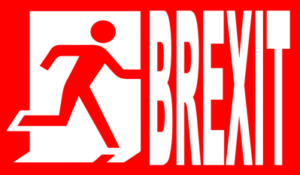 One of the biggest upsets in recent times in a betting sense was Brexit. The referendum on the United Kingdom’s membership of the European Union was one that went to the wire, eventually being won by the Leave vote by 51.89% compared to 48.11% for Remain. Unlike in general elections in the UK, the referendum was not First Past The Post and instead used a system of proportional representation. That meant that each vote was counted towards the eventual outcome, with more than 33 million valid votes being cast.
One of the biggest upsets in recent times in a betting sense was Brexit. The referendum on the United Kingdom’s membership of the European Union was one that went to the wire, eventually being won by the Leave vote by 51.89% compared to 48.11% for Remain. Unlike in general elections in the UK, the referendum was not First Past The Post and instead used a system of proportional representation. That meant that each vote was counted towards the eventual outcome, with more than 33 million valid votes being cast.
The opinion polls in the build-up to the vote generally had things shifted in the favour of Remain, though some did say that Leave would just pip it. The six major opinion polls taken the day before the vote were split as follows:
- Populus: 55% Remain, 45% Leave
- ComRes: 48% Remain, 42% Leave
- TNS: 41 % Remain, 43% Leave
- Opinium: 44% Remain, 45% Leave
- YouGuv: 51% Remain, 49% Leave
- Ipsos MORI: 52% Remain, 48% Leave
Four out of the six polls favoured Remain, with just two believing that Leave would win. In the end, of course, it was the two that proved to be correct.
When you look towards the betting markets, you’ll see that they were equally leaning towards a win for Remain. An article in the Economist on the 12th of May 2016 talking about how the bettors were favouring Remain, with the implied probability of a Remain win based on the betting markets coming through at about 70%, compared to the 30% mark for a Leave win. As the referendum date approached, the betting markets didn’t shift all that much, with the odds on Remain being 4/7 compared to 7/4 for Leave.
At the time of those odds being taken, polls by newspapers showed a majority of people favoured Leave, with one for the Independent seeing Leave take a 10-point lead. When those in the media asked the question about why that might be the case, the answer that came back was that it was thought there would be a swing towards Remain on the day of the vote. Even those putting forward that argument, though, admitted that they couldn’t be certain that that would actually be the case. In other words, no one had any real idea how the vote would go, as we now know.
Things Are Different In America
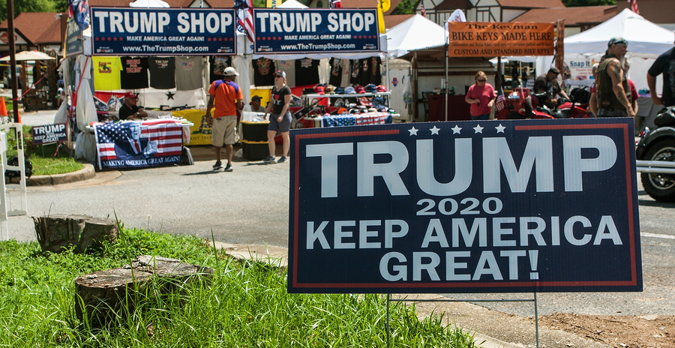
If you want to bet on the American election or politics in general in the United States, you can do so knowing that things are slightly different over there. An article in Forbes a few weeks before the election made the point that betting markets had the outcome of the election as much closer than opinion polls did. The majority of Presidential opinion polls saw Joe Biden with a lead, but the betting average on the 29th of October saw Donald Trump boast a 36% chance of winning, up to as high as 39% for some bookmakers.
Sascha Paruk, a political editor, said that he trusted ‘money more than I trust polls’, but that doesn’t automatically mean that betting markets are always better than polls. Even so, political betting in America is a tale as old as time and the early polls were remarkably accurate. Of the 15 Presidential elections that took place between 1884 and 1940, the betting markets were only wrong on one occasion. The theory is that the people that are betting large enough sums to move the betting markets will have a good idea of what they’re talking about.
That isn’t always the case, however. In 2013, for example, one person, known as a betting whale, bet between four and seven million dollars on Mitt Romney to win the election against Barack Obama. That bet was around one-third of all of the money bet on the Republican candidate and was enough to shift the markets. Whether it was someone looking to hedge earlier bets that they’d placed on the Democratic nominee, someone sensing an upset or was just done in order to shift the market and boost republican morale, it proved that you can’t always trust the biggest bettors.
In the 2016 election, the ten biggest bets taken by Betfair in the United Kingdom on the US election were all on Joe Biden, but the company took more money in total on a trump win. Given the confusion over the likely winner in the polls for that election, that sounds about right in terms of confusion. The market at Betfair was the biggest betting event of its kind, so there were certainly more than a few people who wanted to put their money were their mouths were, to the tune over more than half a billion US dollars.
Is It The Same For TV Shows?
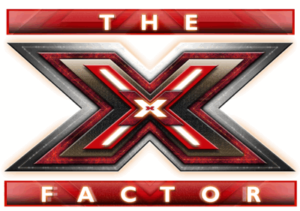 There are numerous different television shows that require people to bet on them. Unfortunately from our point of view, they do not require the same level of polling that we have grown used to in the world of politics. Even so, we can get a sense of how people are likely to vote in TV polls from the state of the betting markets. This can be evidenced by the final of Strictly Come Dancing in 2021, when EastEnders star Rose Ayling-Ellis went up against chef John Whaite. Whaite was in the competition’s first same-sex couple, whilst Ayling-Ellis was the first deaf winner of the contest.
There are numerous different television shows that require people to bet on them. Unfortunately from our point of view, they do not require the same level of polling that we have grown used to in the world of politics. Even so, we can get a sense of how people are likely to vote in TV polls from the state of the betting markets. This can be evidenced by the final of Strictly Come Dancing in 2021, when EastEnders star Rose Ayling-Ellis went up against chef John Whaite. Whaite was in the competition’s first same-sex couple, whilst Ayling-Ellis was the first deaf winner of the contest.
TV presenter AJ Odudu would have taken part in the final two, but had to pull out of the competition after she teared a ligament in her ankle. Ahead of the final, the betting markets were confident that Ayling-Ellis and her professional dance partner, Giovanni Pernice, would win the final. Two days before the final took place, the odds on the actress winning stood at 1/12, compared to the odds of 10/1 for both of the other couples. That was obviously overwhelming odds in her favour, which then played out when the final took place.
The odds were far from being as decisive when it came to I’m A Celebrity…Get Me Out Of Here! In the days before the final took place, Simon Gregson was the favourite with odds of 21/10. Former footballer David Ginola came in at 11/4, whilst former member of the band The Saturdays, Frankie Bridge, was seen as a 4/1 shot. Actor Adam Woodyatt was 15/2, but it was eventually winner Danny Miller that had the longest odds at 17/2. The interesting thing is that both TV shows asked the public to phone up to bet on the winner, yet it was Strictly that most closely resembled the markets.
Should You Follow The Betting Markets?
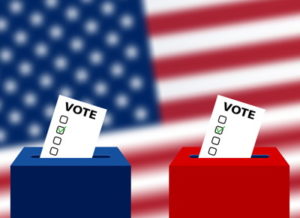 If you’re thinking of placing a bet, either on a political event or else on popular television programme, you might well ask yourself how much attention you should be paying to the betting markets. As you can tell, the answer probably depends on what it is that you’re betting on. If it is American politics then it is worth having a serious think about what people seem to consider to be the right thing to bet on, whilst if it is politics in the United Kingdom then you really only want to pay attention if the markets say the Tories will win.
If you’re thinking of placing a bet, either on a political event or else on popular television programme, you might well ask yourself how much attention you should be paying to the betting markets. As you can tell, the answer probably depends on what it is that you’re betting on. If it is American politics then it is worth having a serious think about what people seem to consider to be the right thing to bet on, whilst if it is politics in the United Kingdom then you really only want to pay attention if the markets say the Tories will win.
Rather than depending entirely on betting markets, we’d more readily recommend that you add the data from the betting markets into your own research. It should be a string to your bow rather than an out-and-out set of information that you follow religiously. It is always a good idea to have a set of rules that you use for yourself and stick to every time you place a bet, but ensure that they are flexible enough to add new information into as and when you discover it. Paying attention to the betting markets is better than being enthral to them, after all.H



